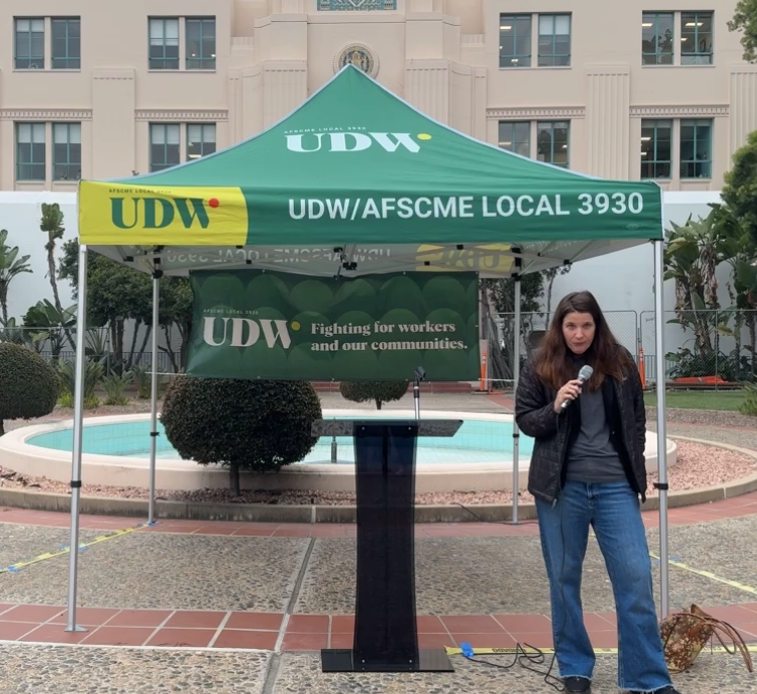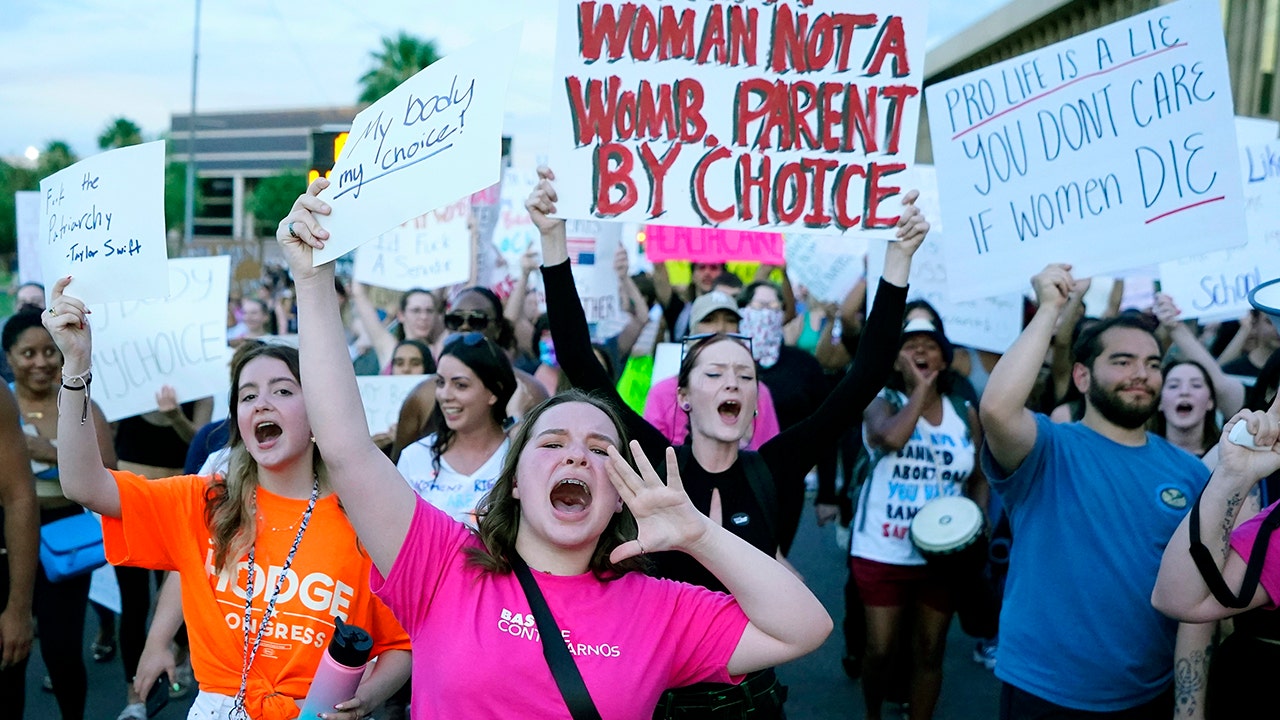World
‘The only way for us to survive’: The life of a New York City candy seller
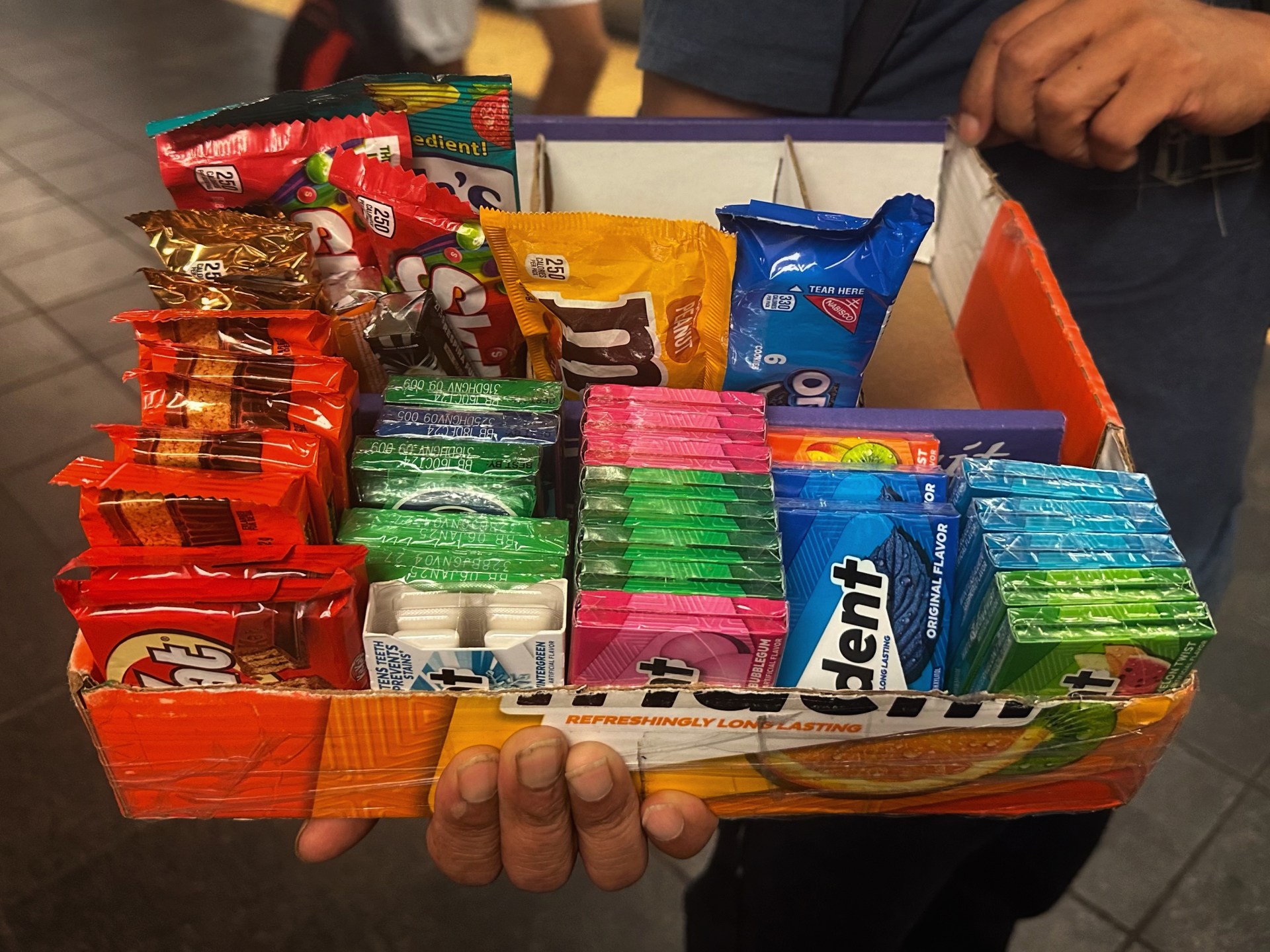
New York City, United States – A clock on the electronic display flickers to noon above the bustling Times Square subway station in New York City. Amid the lunchtime crowd of commuters and tourists stands María, a 31-year-old single mother from Ecuador whose daily life revolves around this transit hub.
It is here, in the tunnels underneath the city, that María earns the money she needs to survive.
On her back is her two-year-old daughter, and in her hands is a colourful tray of candy, crammed with packages of M&Ms and Kit Kat chocolates and sticks of Trident gum.
From the Times Square station, María can hop on and off the Number 7 train, a popular link to the borough of Queens. As she walks from one carriage to the next, she repeats “candy” and “dollar” — two of the few words she knows in English — hoping to make a sale.
Most people, however, look away. Others become aggressive, María said.
New York City is in the midst of an immigration crisis, with more than 113,300 asylum seekers arriving since 2022 — and too few shelters to house them. With the city’s immigration policies in the spotlight, María’s interactions with the public can be tense.
“People insult us or record us without authorisation, accusing us of importing bad habits and poverty from home,” María said. “They don’t understand our situation.”
María — who is using a pseudonym to protect her privacy — is part of a population of largely Ecuadorian candy sellers who make a living on the New York City subway system.
Peddling sweets is familiar work for María: It is the same job she used to do in her hometown in the province of Cotopaxi. But it is also a necessity. Without legal papers authorising her stay in the US, finding steady employment is difficult, seemingly impossible.
“It’s what my cousin and other women from Ecuador I know do because there are no job opportunities. It’s the only way for us to survive,” María explained.
But each sale only nets her one dollar, maybe two. After working 13 hours straight, from 7am to 8pm, she might come home with $50 on a good day, $10 on a bad one.
Still, the pressures in her home country forced her and other Ecuadorian migrants to arrive here and eke out a living on the subway lines.
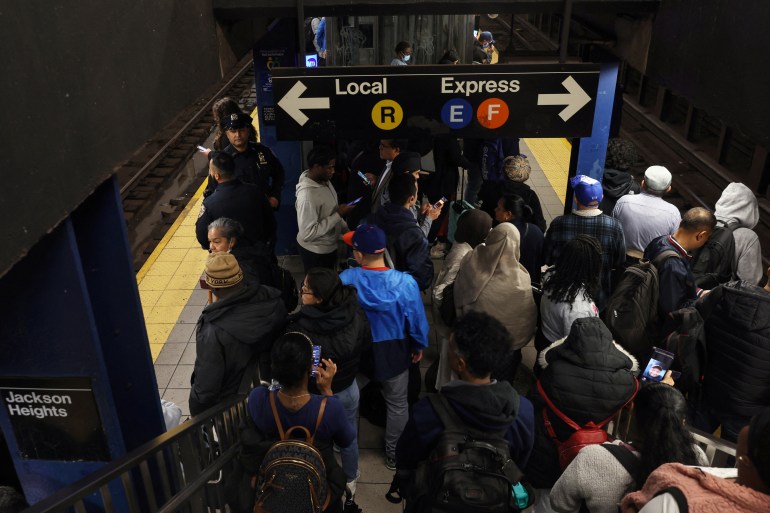
A ‘third wave’ of Ecuadorian migration
By the end of September, the US Border Patrol had apprehended 117,487 Ecuadorians for the fiscal year 2023 — more than four times the previous year’s total.
Anthropologist Soledad Alvarez, a professor at the University of Illinois Chicago, considers this spike part of Ecuador’s third major “wave” of emigration since the 1980s.
She told Al Jazeera the current exodus began in 2014, “caused by the decline in oil prices”.
“Then the pandemic came and hit Ecuador severely,” she said. “Since then, this crisis has deepened under the administrations of Lenin Moreno and Guillermo Lasso, leading to substantial migration in recent years.”
The National Institute of Statistics and Censuses in Ecuador (INEC) reports that income poverty — defined as earnings of less than $89.29 per month — reached 27 percent in June. Extreme poverty, meanwhile, hit 10.8 percent.
Alvarez also points to the deteriorating security situation in Ecuador as a motivation for leaving.
“Increasing violence, fuelled by insecurity and drug trafficking, has forced thousands of Ecuadorians to forcibly leave in recent years,” Alvarez said.

Last year was the worst for criminal violence, with 25 homicides per 100,000 people. And in 2023, the situation escalated. The homicide rate in Ecuador is now the fourth highest in Latin America.
María witnessed many of her neighbours and acquaintances leaving as a result of the violence.
The tipping point for her was when the father of her child passed away during the COVID-19 pandemic. She was alone, racking up debt, and what little she earned was sometimes stolen as the country’s crime rates ticked upwards.
“It’s not just jobs and food that we’re lacking. Ecuador has become extremely dangerous. We now live in constant fear,” María said.
She left Ecuador in the first week of April, travelling north through the Darién Gap, a dangerous stretch of jungle that connects South America to Central America. For two months, she walked and caught buses, spending $3,000 in expenses for the journey.
María said arrived in the US three months ago. She and her child now live in Elmhurst, Queens, where she rents a small space in the living room of her cousin’s family for $800 a month.
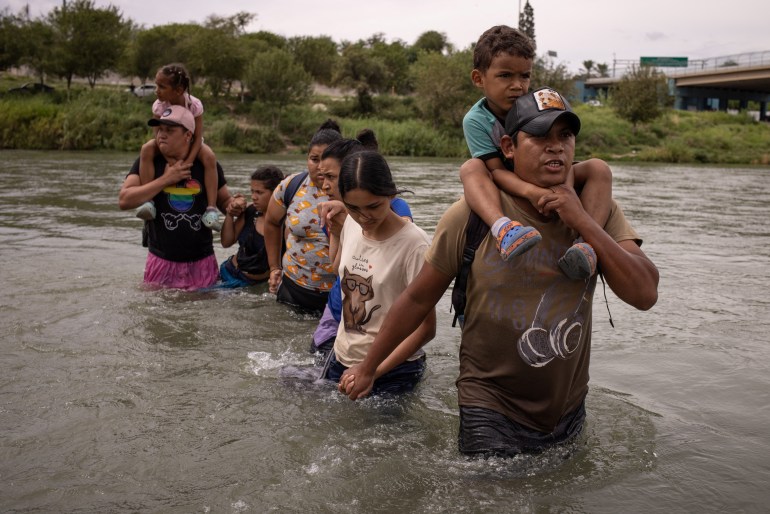
Risks to selling candy
Back home in Ecuador, María said selling candy was primarily women’s work. But in New York, she competes with men and even children on the subway platforms, hawking candy she bought at a wholesale store.
The presence of young children has sparked particular concern among the public. Some subway riders have taken to social media to vent their frustration.
“This is child exploitation and should be banned,” one user on TikTok said. Another called on law enforcement to intervene.
Under New York state law, child labour under age 14 is largely prohibited and can be regarded as abuse. But Alvarez, the anthropologist, said many new arrivals from Ecuador are unaware of the local laws.
“They are ensnared in a reality where sheer survival is their sole objective. They grapple with traumas and escape from destitute circumstances,” she told Al Jazeera.

Additionally, the Metropolitan Transportation Authority (MTA) prohibits unauthorised commercial activity in the subway. Police can fine the candy sellers $50 if they catch them, so María is constantly on the lookout for their uniforms.
“We run away from the police when we see them. A ticket can cost what we earn in a day. Police also tell us that we can lose the custody of our children,” she said.
Gustavo Espinoza, a community organiser, explained to Al Jazeera that there are services and organisations working to educate new immigrants about the resources available to them.
However, those without legal immigration papers are often reluctant to seek assistance due to their fear of deportation, Espinoza said. They “live in constant fear”.
“There is evidently a barrier,” he explained. “There are organisations that want to help but they don’t reach the immigrants who need assistance but are afraid to ask or seek help.”
In August, New York City Mayor Eric Adams estimated the city could end up paying up to $12bn to support migrants over the next three years.
In its $107bn budget for 2024, the city council approved $16m for Promise NYC, a programme that offers stipends for childcare to low-income parents, including undocumented ones.
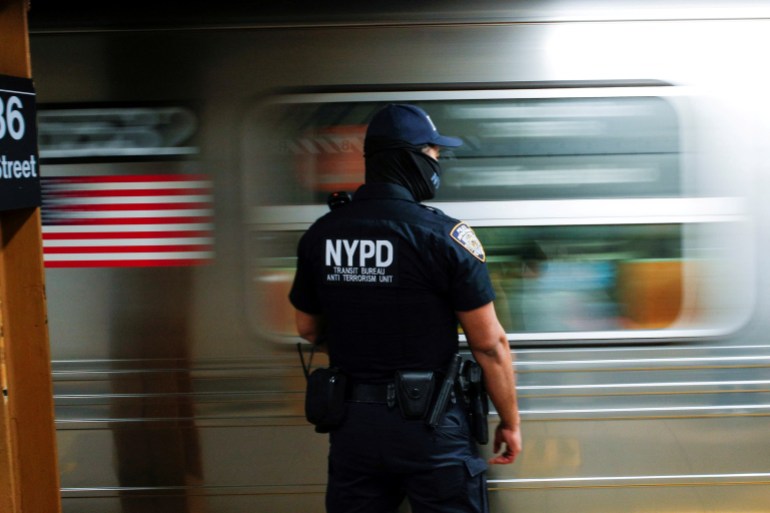
But advocates say those efforts are not enough to help migrants and asylum seekers like María, who rarely goes anywhere without her child.
Some are pushing for the New York State Senate to pass a 2023 bill that would offer universal childcare to all parents, regardless of immigration status. But that legislation is still pending.
For María and others, though, there seems to be no alternative but to carry on with their daily routines, children in tow.
María’s daughter rides on her back throughout the day: She only ever sets the two-year-old down briefly, keeping a watchful eye on the child. On top of her cargo of candy to sell, María carries around cookies and a bottle of milk to feed her child, who often dozes as her mother works.
“I can’t leave my daughter alone at home. Nobody will care for her,” María said.
Life, at least for the time being, means balancing both childcare and selling candy in the subway: “There’s no other option.”

World
Reuters withdraws its story that stated UK's Cameron said UK not against its weapons being used inside Russia – Euromaidan Press

On 2 May in Kyiv, British Foreign Secretary David Cameron pledged £3 billion ($3.75 billion) in annual military assistance for Ukraine for “as long as is necessary,” saying the UK has no objections to the weapons it provided being used within Russia, according to Reuters. Update: the story is withdrawn.
In an interview with Reuters in Kyiv, Cameron noted that some of the British equipment “is actually arriving in Ukraine today, while I’m here,” also noting:
“We will give three billion pounds every year for as long as is necessary. We’ve just really emptied all we can in terms of giving equipment,” the British Foreign Secretary said.
World
Mexican cops find tents, question people in the case of 2 Australians, 1 American missing in Baja

Mexican authorities said Thursday they have found tents and questioned three people in the case of two Australians and an American who went missing over the weekend in the Pacific coast state of Baja California.
María Elena Andrade Ramírez, the state’s chief prosecutor, would not say whether the three people questioned were considered possible suspects or witnesses in the case. She said only that some were tied directly to the case, and others indirectly.
2 AMERICANS FOUND DEAD IN HOTEL ROOM IN MEXICO’S BAJA CALIFORNIA
But Andrade Ramírez said evidence found along with the abandoned tents was somehow linked to the three. The three foreigners were believed to have been surfing and camping along the Baja coast near the coastal city of Ensenada, but did not show up at their planned accommodations over the weekend.
“A working team (of investigators) is at the site where they were last seen, where tents and other evidence was found that could be linked to these three people we have under investigation,” Andrade Ramírez said. “There is a lot of important information that we can’t make public.”
Mexican authorities have found tents and questioned three people in the case of two Australians and an American who went missing over the weekend in the Pacific coast state of Baja California. (Fox News)
“We do not know what condition they are in,” she added. While drug cartels are active in the area, she said “all lines of investigation are open at this time. We cannot rule anything out until we find them.”
On Wednesday, the missing Australians’ mother, Debra Robinson, posted on a local community Facebook page an appeal for help in finding her sons, Jake and Callum. Robinson said her son had not been heard from since Saturday April 27. They had booked accommodations in the nearby city of Rosarito, Baja California.
Robinson said one of her sons, Callum, is diabetic. She also mentioned that the American who was with them was named Jack Carter Rhoad, but the U.S. Embassy in Mexico City did not immediately confirm that. The U.S. State Department said it was aware of reports of a U.S. citizen missing in Baja, but gave no further details.
Andrade Ramírez said her office was in contact with Australian and U.S. officials. But she suggested that the time that had passed might make it harder to find them.
“Unfortunately, it wasn’t until the last few days that they were reported missing. So, that meant that important hours or time was lost,” she said.
In 2015, two Australian surfers, Adam Coleman and Dean Lucas, were killed in western Sinaloa state, across the Gulf of California — also known as the Sea of Cortez— from the Baja peninsula. Authorities say they were victims of highway bandits. Three suspects were arrested in that case.
World
European elections: What do voters want? What have candidates pledged?

Watch episode one of Euronews’ guide on the European elections, taking place from June 6 to 9.
Ahead of European elections in June, Euronews asked voters to name one proposal they would do if elected to the European Parliament and questioned candidates on their pledges.
Watch the video above to find out more.
-

 News1 week ago
News1 week agoLarry Webb’s deathbed confession solves 2000 cold case murder of Susan and Natasha Carter, 10, whose remains were found hours after he died
-

 World1 week ago
World1 week agoHaiti Prime Minister Ariel Henry resigns, transitional council takes power
-

 News1 week ago
News1 week agoFirst cargo ship passes through new channel since Baltimore bridge collapse
-

 World1 week ago
World1 week agoUS secretly sent long-range ATACMS weapons to Ukraine
-

 World1 week ago
World1 week agoSpanish PM Pedro Sanchez suspends public duties to 'reflect'
-

 News1 week ago
News1 week agoAmerican Airlines passenger alleges discrimination over use of first-class restroom
-

 Movie Reviews1 week ago
Movie Reviews1 week agoHumane (2024) – Movie Review
-

 Education1 week ago
Education1 week agoVideo: Johnson Condemns Pro-Palestinian Protests at Columbia University


